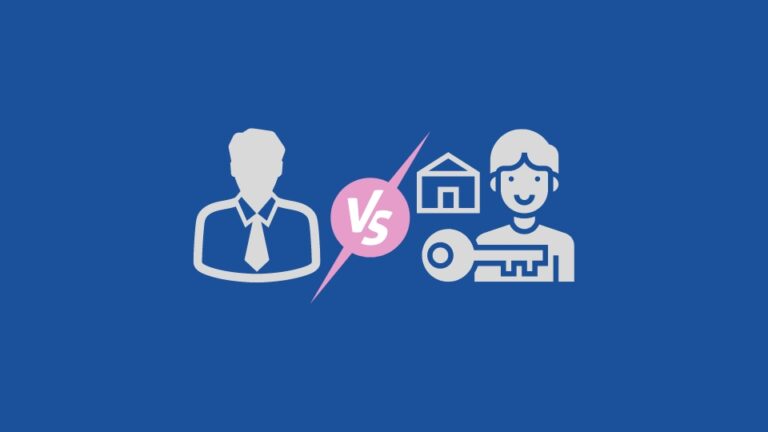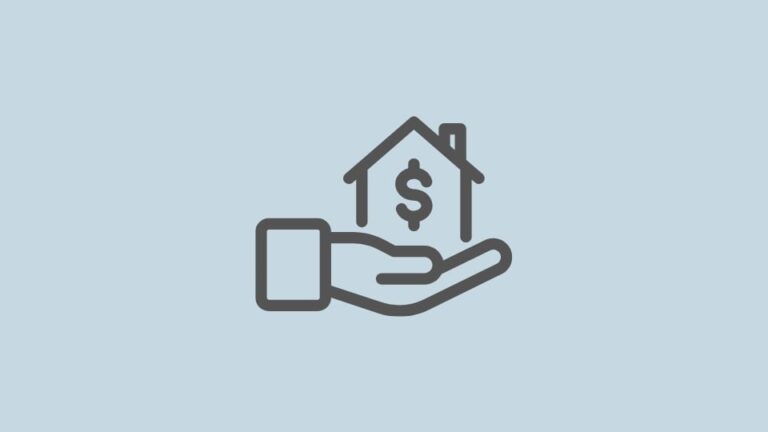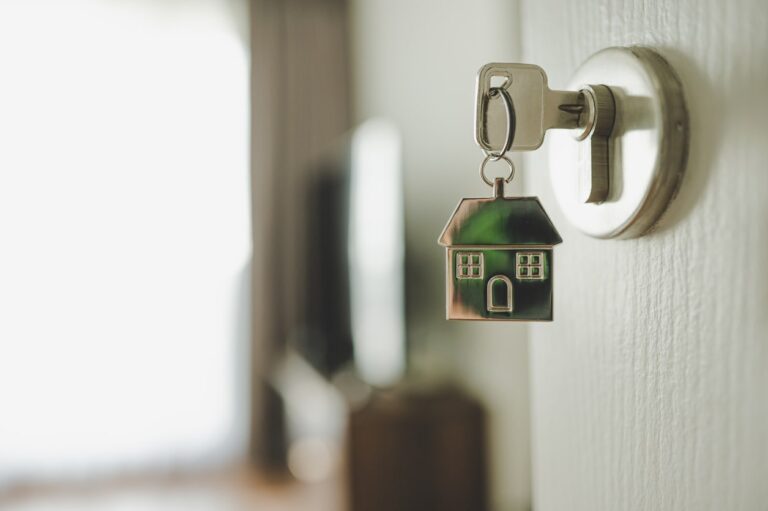Can A Landlord Be Held Liable for Nuisance Tenants?
Have you ever felt like you’re grasping at straws trying to figure out if your troublesome tenant’s antics could land you, the landlord, in hot water? You’re about to get your answer. Landlords can indeed be held liable for nuisance tenants, depending on the situation.
This ruling isn’t meant to scare you into paranoia over every tenant’s actions, but to ensure that everyone understands the importance of maintaining a peaceful, safe, and respect-filled living environment.
Let’s dig a bit deeper into this topic to fully understand when an when you can’t be held accountable, and to what extent. By being aware of the right way to manage potential issues, you can maintain a positive, profitable rental business and avoid unnecessary legal entanglements.
“Landlords, in specific circumstances, can be held liable for their tenants’ actions which cause abandonment, disturbance, or harm to others. Awareness and appropriate action are your best defense.”
What constitutes a nuisance tenant?
A “nuisance tenant” is typically defined by consistent behaviors that violate the terms of their lease agreement, the rights of other tenants, or causes property damage. In general, such behaviors can make living or doing business in proximity to the tenant difficult and unpleasant.
- Untidy or Unsanitary Conditions: A tenant could be considered a nuisance if they consistently fail to maintain their property in a clean and tidy manner, leading to unsanitary or unpleasant conditions that can affect others.
- Noise Disruptions: Regular loud noises, especially during quiet hours or late at night, are not only disruptive but can also lead to official complaints from other tenants, neighbors, or even law enforcement.
- Violation of Lease Agreement: Continual violation of lease terms, such as having unauthorized occupants or pets, are also grounds for categorizing a tenant as a nuisance.
- Illegal Activities: Engaging in illegal activities on the property not only pose a direct threat to a safe living environment, but also threaten the landlord’s reputation and legal standing.
Given the potential negative impacts of having a nuisance tenant, it’s crucial for landlords to take note of these problem behaviors and promptly address issues as they arise. Failure to manage nuisance tenants effectively can potentially put the landlord at risk of liability for their behavior or actions.
What are the legal obligations of a landlord in dealing with nuisance tenants?
Being a landlord comes with certain responsibilities especially when dealing with nuisance tenants. Yes, you read it right. As a landlord, you’re not altogether free from obligations. Let’s dive right into what you’re legally expected to do when faced with this situation.
First and foremost, maintaining a peaceful living environment is one of your primary duties. This implies that if a tenant is causing frequent disturbances, you are expected to step in and address the issue. Remember, every other tenant has the right to quiet enjoyment of the rented property. They pay for it, they deserve it.
“The landlord can be held responsible, if he or she knew about the nuisance behavior and didn’t take reasonable steps to intervene. This could range from warnings or fines to eviction, depending on the nature and severity of the nuisance.”
Moreover, creating a buffer between conflict parties could often be part of your job. When disputes emerge between tenants, certain situations may require your interference as a mediating party. Your role is to keep the overall environment congenial and peaceful.
Additionally, it’s essential to keep detailed records of all tenant complaints, responses, and actions taken. This isn’t merely about being organized. Instead, it serves as valuable proof of your active management, should legal issues ever arise.
Proactive measures are your safeguard. Proactively addressing small problems can prevent them from escalating into significant nuisances. It’s about staying a step ahead and performing regular inspections. Not just of the physical property itself, but also of the overall living situation. This helps nip problems in the bud before they snowball.
Last but not least, it’s crucial to know and adhere to the local ordinances and laws regarding nuisance issues. Landlords are obligated to enforce these rules to ensure a peaceful environment for all tenants. Ignorance is no excuse in the eyes of the law.
In a nutshell, striking the right balance in tenant management is critical for a smooth landlord experience. This doesn’t mean being a watchful hawk, but rather showing understanding, responsiveness, and assertiveness when necessary.
Under what circumstances can a landlord be held liable for the actions of a nuisance tenant?
If you’re a landlord, you might be scratching your head and wondering if and when you can be held responsible for the actions of a nuisance tenant. Let’s unravel this mystery together.
In general, a landlord may be found liable if they fail to take reasonable steps to stop or prevent the nuisance once they’ve been made aware of it. In other words, if you, as a landlord, knew or should have known that a tenant was creating a nuisance and did nothing to remedy the situation, you could be found liable.
Now, what does reasonable steps really mean? It primarily involves responding promptly and appropriately when notified of a nuisance. This could mean issuing a warning to the tenant, attempting to negotiate a resolution, or even beginning eviction proceedings in more serious cases.
Consider these two scenarios:
- A tenant regularly holds loud parties late into the night, disturbing other tenants. Other tenants complain to the landlord, who does nothing. In this scenario, the landlord could be found liable.
- A tenant owns a dog that barks incessantly. The landlord receives numerous complaints but fails to address the issue. In this case too, the landlord could be liable.
However, it’s not always black and white. For instance, if a tenant has been discreet about their nuisance behavior or other tenants have not brought it to your attention, a landlord can’t be expected to intervene. Moreover, if a landlord tries to intervene but the tenant continues the behavior, this may limit the landlord’s liability. Each situation is unique, and often a legal professional is the best person to consult when determining possible liability.
On a final note, do remember that eviction should really be a last resort. It can be a long, expensive process and is often best avoided if a resolution can be worked out. Your best bet as a landlord is always to try and maintain open lines of communication with your tenants and foster a respectful, cooperative living environment. No one wants a nuisance, after all!
What steps can a landlord take to mitigate the impact of nuisance tenants?
As a landlord, you may feel helpless in the face of nuisance tenants. However, fear not as there are several actions you can take to mitigate the impact caused by these bothersome occupants. While these steps may require time and effort, they could prevent future troubles and potential legal issues. Let’s explore them one by one.
- Screening Tenants: Your first line of defense starts before the lease is even signed. Properly screening potential tenants can help identify those who may be likely to cause problems. This includes running credit checks, checking references, and carrying out background checks.
- Effectively Communicate Expectations: Making your expectations clear from the beginning can minimize misunderstandings. Include explicit terms in the lease about expected behavior, and provide tenants with a copy of the building’s rules and regulations.
- Act Swiftly to Complaints: When you receive a complaint, investigate it as soon as possible. Delaying your response could make the problem worse and can potentially expose you to liability.
- Legal Assistance: In more severe cases, it may be necessary to involve your legal counsel. An attorney can guide you through the process of addressing problem tenants, protecting your interests and assets along the way.
- Eviction: In extreme situations, eviction might be the only solution. However, eviction laws differ significantly across states, so ensure you approach this option legally and ethically.
By consistently applying these steps, you can avoid the distressing impact of a nuisance tenant. Remember, being a landlord involves not just providing a space to live, but also ensuring a peaceful living environment for all tenants.
Note: This is for informational purposes only and does not constitute legal advice. For any legal concerns, you should consult with a professional.
Are there any specific laws or regulations that govern landlord liability for nuisance tenants?
Depending on your location, there may be a variety of laws and regulations that relate directly to landlord liability for nuisance tenants. These laws can be intricate, with variations between different cities, states, or countries. Understanding them is indispensable in maintaining a peaceful multi-tenant environment.
One significant law that usually comes into play in such situations is the landlord-tenant law. This law defines the rights and responsibilities of both landlord and tenant. As per this law, landlords have a responsibility to provide tenants with peaceful enjoyment of the rented premises. But at the same time, if a tenant is causing a nuisance and disturbing others, landlords have an obligation to intervene.
Depending on the state, specific housing or noise ordinances also govern the behavior of tenants. For example, some places have strict noise ordinances, and violating these could lead to penalties. Though primarily directed at tenants, knowing about these laws may help a landlord manage nuisance tenants effectively.
Anti-discrimination laws are also pertinent. These laws protect tenants from arbitrary eviction. For this reason, a landlord must be sure that a tenant is indeed causing a nuisance, rather than simply being annoying or different, before taking strict actions.
Here’s an overview of the legal provisions related to landlord liability in rental situations:
| Legal Provision | Description |
| Landlord-Tenant Law | Lays out rights and responsibilities of landlords and tenants |
| Housing and Noise Ordinances | Regulates tenant behavior and standardizes living environments |
| Anti-Discrimination Laws | Ensures that landlords handle nuisance complaints fairly and without prejudice |
Legal consultation may be an appropriate step in perplexing situations. It can help you navigate associated regulations and laws more confidently, safeguarding not just your rights, but also those of your other tenants. As a landlord, the better you understand these laws, the more prepared you will be to cope with nuisance tenants and any resulting liability.
Conclusion
In wrapping things up, it’s evident that your role as a landlord isn’t always an easy one, especially when dealing with nuisance tenants. Remember that while these situations can be stressful and complicated, the law often provides recourse. So, it’s crucial that you always stay informed about your legal obligations and rights. This will help you navigate any hiccups on your landlord journey.
The key takeaway? Not all tenant issues automatically make you, as a landlord, liable. However, if their behavior substantially interferes with others’ quiet enjoyment of their homes and you fail to address the problem despite being aware of it, you might find yourself on the wrong side of the law. Not to mention the possibility of losing good tenants or damaging your reputation.
So, strive to:
- Screen tenants thoroughly: Background and credit checks can help weed out potential troublemakers before they become your tenants.
- Communicate effectively: Ensure tenants know what’s acceptable behavior per the lease agreement.
- Respond promptly: If you receive a complaint about a tenant, do not overlook it. Take prompt, appropriate action.
- Seek legal counsel: If a situation gets particularly tricky, don’t hesitate to get a legal adviser involved.
By taking these precautions, you can lessen the likelihood of being held accountable for your tenants’ nuisance actions. Thereby, fostering a harmonious living environment for all and keeping your property rental business going strong.
Remember, being a landlord is not just about collecting rent. It’s about providing a safe and comfortable environment for your tenants. Adopting a proactive approach in handling nuisance tenants can save you a lot of troubles.
And finally, always keep up-to-date with changes in the laws and regulations pertaining to nuisance tenants and landlord responsibilities. This knowledge will empower you to make wise decisions, prevent legal troubles, and lead to better landlord-tenant relationships. So, here’s to successful and hassle-free property management.
FAQs
What can be considered a nuisance by a tenant?
This typically refers to actions by a tenant which disturb the peace and quiet of other tenants or neighbors. It could include constant loud noise, illegal activities, or violating housing rules consistently.
Can a landlord be sued for a tenant’s actions?
Yes, in certain situations. If a landlord knew about the tenant’s problematic behavior and failed to take action, they could potentially be held responsible.
Does a landlord have a responsibility to control a tenant’s behavior?
While landlords cannot control every action of their tenants, they do have an obligation to ensure that the tenant does not disrupt the living environment for others. This means taking appropriate action when they become aware of a nuisance tenant.
What action can a landlord take against a nuisance tenant?
This can range from serving a notice to remedy the situation, implementing fines (if included in the lease agreement), or ultimately eviction procedures if the behavior continues.
Are there laws protecting landlords from nuisance tenants?
Yes, there are specific laws that protect landlords. For example, landlords have the right to evict tenants who consistently cause disturbances or fail to conform to the stipulated rules in the lease agreement.
What is the process for evicting a nuisance tenant?
The process can vary by state and local laws. It often involves serving the tenant with a notice to quit or pay, filing for eviction with the court if the tenant fails to address the issue, and lastly, forcibly removing the tenant with law enforcement if they do not vacate voluntarily.
Can a tenant sue a landlord for not addressing another tenant’s behavior?
In some cases, yes. If a tenant can prove that a landlord was aware of the disruptive behavior and didn’t take reasonable measures to remedy the situation, they may have grounds for a lawsuit.
Do landlords have to disclose nuisance tenants to potential new tenants?
This depends on local laws and regulations. Some areas may require landlords to disclose known issues with current tenants, while others may not.
What can a landlord do to prevent having nuisance tenants?
Preventative measures include conducting thorough background checks, having a clear and strict lease agreement, and addressing any issues promptly and effectively.
What can tenants do to protect themselves from nuisance neighbors?
Tenants can report the behavior to the landlord or property manager, document incidents as evidence, and in severe or ongoing cases, may seek help from local authorities or legal counsel.






